National
Trudeau’s environment minister proclaims himself ‘proud socialist’ before House of Commons
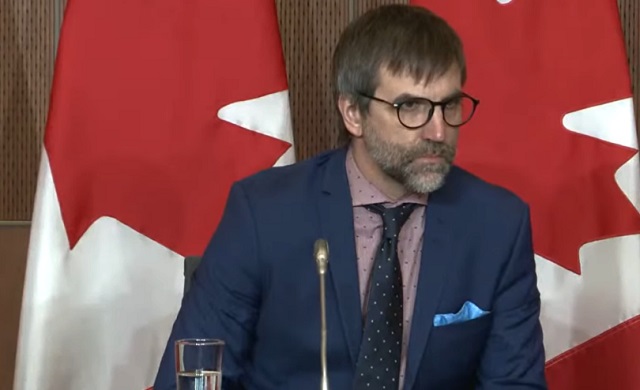
From LifeSiteNews
Steven Guilbeault made the declaration during a debate about the impact of carbon tax policies on soaring energy bills
Minister of Environment Steven Guilbeault proudly proclaimed before the House of Commons on Tuesday that he is a “proud socialist” during a debate over a carbon tax the federal government has imposed on Canadians that has contributed to sky-high energy bills.
“I’m a Liberal and a proud socialist,” Guilbeault said after being asked a question by Conservative Party of Canada (CPC) MP Ted Falk concerning the carbon tax.
Guilbeault then blamed former conservative Prime Minister Stephen Harper for not “believing” in “climate change” as a reason the current conservatives do not support a carbon tax.
“This reminds me of a certain quote from Prime Minister Harper who talked about the fight against climate change as a socialist plot,” he said.
“Here it is, you have it again, Mr. Speaker. They do not believe that climate change is an issue. They do not believe we should do anything about it.”
Where did he say this? I would love to share the clip.
— Nicholas Grillo🍎🍎 (@nicholas_grillo) November 7, 2023
Falk had said to Guilbeault before his “socialist” response that Prime Minister Justin Trudeau has created a “carbon tax” coalition with other socialist and separatist entities in Canada to cause financial pain for Canadians.
“After eight years, we now have the socialists, the separatists, and this prime minister who’s just not worth the cost,” Falk said.
“They’re all part of this costly carbon tax coalition that is leaving Canadians out in the cold.”
Trudeau has many times before blamed Harper for his government’s ills, it should be noted.
Reaction to Guilbeault’s comments came swiftly from many Canadian political pundits and others.
“Steven Guilbeault isn’t just a ‘proud socialist,’ he’s a total nutbar, climate extremist and incompetent minister,” wrote Paul Mitchell, a former People’s Party of Canada candidate and political commentator on X (formerly Twitter).
“Every provincial premier should demand that Guilbeault be sacked. Dealing with him is intolerable.”
Jim Murphy, a retired Toronto police officer, wrote on X, “I’m a bit confused, shouldn’t @s_guilbeaultbe a member of the NDP and not the @liberal_party? Serious question.”
The carbon tax has been a hot topic in the House of Commons, notably after Trudeau announced about two weeks ago he was pausing the collection of the carbon tax on home heating oil for three years but only for Atlantic Canadian provinces. The current cost of the carbon tax on home heating fuel is 17 cents per liter. Most Canadians, however, heat their homes with clean-burning natural gas, which will not be exempted from the carbon tax.
Trudeau’s carbon tax pause for Atlantic Canada announcement came amid dismal polling numbers showing his government is likely to be defeated in a landslide by the Conservative Party in the next election.
As a result, the CPC under leader Pierre Poilievre introduced a motion calling for the carbon tax to be paused for all Canadians. This motion was voted down on Monday by the Liberals with support from the Bloc Quebecois.
The New Democratic Party (NDP) voted in support of the CPC motion, despite the fact they have an informal coalition with the party that began last year, agreeing to support and keep the Liberals in power until the next election is mandated by law in 2025.
As for Guilbeault, he is perhaps Trudeau’s most radical minister in terms of his extreme environmental views. He recently said the Liberal government was going to push ahead with net-zero emission regulations despite the fact Canada’s Supreme Court recently ruled against the federal government’s “no more pipelines” legislation.
Earlier this year, the CPC slammed Trudeau for having Guilbeault accept an invite from China for climate talks.
Alberta Premier Danielle Smith has been a staunch opponent of Trudeau’s net-zero regulations and praised the court decision as returning power to the provinces.
Guilbeault has a history of environmental activism. In 2001, he was arrested after scaling the CN Tower in Toronto as part of a stunt for Greenpeace.
The CPC has previously called out extreme views emanating from the Liberal Party.
In September, Poilievre called Trudeau and his father Pierre Elliot Trudeau “Marxists” when asked by an Ontario resident what could be done to help prevent Canada from going “down” due to Liberal policies.
LifeSiteNews reported last month how Trudeau’s carbon tax is costing Canadians hundreds of dollars annually, as the rebates given out by the federal government are not enough to compensate for the increased fuel costs.
The Trudeau government’s current environmental goals – in lockstep with the United Nations’ “2030 Agenda for Sustainable Development” – include phasing out coal-fired power plants, reducing fertilizer usage, and curbing natural gas use over the coming decades.
The reduction and eventual elimination of the use of so-called “fossil fuels” and a transition to unreliable “green” energy has also been pushed by the World Economic Forum (WEF) – the globalist group behind the socialist “Great Reset” agenda – an organization in which Trudeau and some of his cabinet are involved.
Business
Manitoba Must Act Now To Develop Its Northern Ports

From the Frontier Centre for Public Policy
With U.S. trade risks rising, Manitoba has a fleeting shot to turn Churchill into a year-round Arctic shipping hub. Without bold investment, the North’s economic and strategic promise will slip away.
The window to turn Manitoba’s northern coast into a year-round shipping hub is closing fast
Rising trade tensions with the United States have given Manitoba a rare second chance to develop its northern ports. But if the province doesn’t act decisively, it will miss a historic opportunity to gain a permanent place in global trade—and reinforce Canadian sovereignty.
Manitoba exports billions in agricultural, mineral and manufactured goods to the U.S., so any disruption in that relationship has ripple effects across the province’s economy. Diversifying trade routes isn’t just smart policy: it’s an economic necessity.
Churchill, a small town on the western shore of Hudson Bay in northern Manitoba, is Canada’s only deepwater port connected to the Arctic. Churchill requires regular dredging in an ecologically sensitive area at the mouth of the Churchill River. While most attention has focused on Churchill, its potential will remain limited without serious investment to make it a year-round operation. Right now, it’s only usable during the summer months.
Premier Wab Kinew recently highlighted Churchill as a strategic asset for asserting Canada’s northern sovereignty. That may be true, but symbolic importance alone won’t sustain it. Economic value and operational reliability will. The port’s rail accessibility gives it an advantage if it can handle the volume and meet international trade demands year-round. However, the railway to Churchill is challenged because of unstable permafrost, affecting long-term reliability.
Feiyue Wang, a University of Manitoba professor and Canada Research Chair, sees Churchill as a potential game-changer. As climate predictions see a reduction in sea ice in the Canadian Arctic, shipping lanes that were once blocked for most of the year could become viable trade routes. That’s already happening.
The Arctic Gateway Group has shipped zinc concentrate through Churchill. Alberta Premier Danielle Smith and others have promoted sending oil through it. These aren’t just theoretical opportunities: they’re early evidence of what’s possible. But for Churchill to become a true supply chain hub, it needs infrastructure, investment and long-term political commitment.
Governments have already put money into the port and its rail link. But they must finish the job. That means building the capacity for four-season shipping, attracting private investment, and showing that the port will be viable over time. Manitoba should also press Ottawa to maintain a military presence in the region and use the port to reinforce northern sovereignty.
But if Manitoba is serious about developing northern trade infrastructure, it should also consider a second, ambitious alternative.
The Neestanan utility corridor, an Indigenous-led initiative, proposes a new infrastructure route—rail, roads and energy pipelines—across northern Alberta, Saskatchewan and Manitoba. The corridor would terminate at a year-round, multi-modal port on Hudson Bay, north of the Nelson River. Led by First Nations and Métis communities, Neestanan offers a broader vision for economic reconciliation and northern opportunity. Port Nelson is a deeper water port and its railway line is not in a permafrost zone, making it more feasible for year-round operations.
A century ago, Prime Minister Wilfrid Laurier’s government debated whether Churchill or Port Nelson should serve as the main northern terminal. Ottawa initially backed Port Nelson but later abandoned it due to silt accumulation. Churchill became the chosen site.
Today, both locations deserve a fresh look. With modern engineering, sediment shifts and Indigenous-led proposals, what wasn’t feasible in 1910 may now be not only possible, but necessary.
Churchill was originally built to ship Prairie grain to global markets. But its future lies in more than grain. With the right investment, it could handle a much wider range of goods and help secure Canada’s place in the evolving Arctic economy.
In short, the opportunity lies in developing both ports based on their practical and feasible characteristics, aiming to attract private investment.
This is Manitoba’s moment. But the window of opportunity won’t stay open forever. Other jurisdictions are moving faster. Manitoba must act swiftly—before the opportunity is lost.
This is a revised version of an earlier commentary published here
Banks
Debanking Is Real, And It’s Coming For You
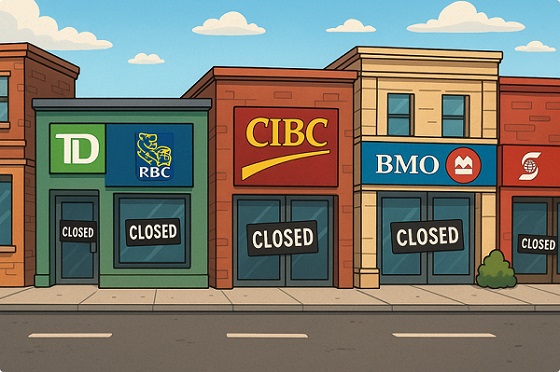
From the Frontier Centre for Public Policy
Marco Navarro-Genie warns that debanking is turning into Ottawa’s weapon of choice to silence dissent, and only the provinces can step in to protect Canadians.
Disagree with the establishment and you risk losing your bank account
What looked like a narrow, post-convoy overreach has morphed into something much broader—and far more disturbing. Debanking isn’t a policy misfire. It’s turning into a systemic method of silencing dissent—not just in Canada, but across the Western world.
Across Canada, the U.S. and the U.K., people are being cut off from basic financial services not because they’ve broken any laws, but because they hold views or support causes the establishment disfavors. When I contacted Eva Chipiuk after RBC quietly shut down her account, she confirmed what others had only whispered: this is happening to a lot of people.
This abusive form of financial blacklisting is deep, deliberate and dangerous. In the U.K., Nigel Farage, leader of Reform UK and no stranger to controversy, was debanked under the fig leaf of financial justification. Internal memos later revealed the real reason: he was deemed a reputational risk. Cue the backlash, and by 2025, the bank was forced into a settlement complete with an apology and compensation. But the message had already been sent.
That message didn’t stay confined to Britain. And let’s not pretend it’s just private institutions playing favourites. Even in Alberta—where one might hope for a little more institutional backbone—Tamara Lich was denied an appointment to open an account at ATB Financial. That’s Alberta’s own Crown bank. If you think provincial ownership protects citizens from political interference, think again.
Fortunately, not every institution has lost its nerve. Bow Valley Credit Union, a smaller but principled operation, has taken a clear stance: it won’t debank Albertans over their political views or affiliations. In an era of bureaucratic cowardice, Bow Valley is acting like a credit union should: protective of its members and refreshingly unapologetic about it.
South of the border, things are shifting. On Aug. 7, 2025, U.S. President Donald Trump signed an executive order titled “Guaranteeing Fair Banking for All Americans.” The order prohibits financial institutions from denying service based on political affiliation, religion or other lawful activity. It also instructs U.S. regulators to scrap the squishy concept of “reputational risk”—the bureaucratic smoke screen used to justify debanking—and mandates a review of past decisions. Cases involving ideological bias must now be referred to the Department of Justice.
This isn’t just paperwork. It’s a blunt declaration: access to banking is a civil right. From now on, in the U.S., politically motivated debanking comes with consequences.
Of course, it’s not perfect. Critics were quick to notice that the order conveniently omits platforms like PayPal and other payment processors—companies that have been quietly normalizing debanking for over a decade. These are the folks who love vague “acceptable use” policies and ideological red lines that shift with the political winds. Their absence from the order raises more than a few eyebrows.
And the same goes for another set of financial gatekeepers hiding in plain sight. Credit card networks like Visa, American Express and Mastercard have become powerful, unaccountable referees, denying service to individuals and organizations labelled “controversial” for reasons that often boil down to politics.
If these players aren’t explicitly reined in, banks might play by the new rules while the rest of the financial ecosystem keeps enforcing ideological conformity by other means.
If access to money is a civil right, then that right must be protected across the entire payments system—not just at your local branch.
While the U.S. is attempting to shield its citizens from ideological discrimination, there is a noticeable silence in Canada. Not a word of concern from the government benches—or the opposition. The political class is united, apparently, in its indifference.
If Ottawa won’t act, provinces must. That makes things especially urgent for Alberta and Saskatchewan. These are the provinces where dissent from Ottawa’s policies is most common—and where citizens are most likely to face politically motivated financial retaliation.
But they’re not powerless. Both provinces boast robust credit union systems. Alberta even owns ATB Financial, a Crown bank originally created to protect Albertans from central Canadian interference. But ownership without political will is just branding.
If Alberta and Saskatchewan are serious about defending civil liberties, they should act now. They can legislate protections that prohibit financial blacklisting based on political affiliation or lawful advocacy. They can require due process before any account is frozen. They can strip “reputational risk” from the rulebooks and make it clear to Ottawa: using banks to punish dissenters won’t fly here.
Because once governments—or corporations doing their bidding—can cut off your access to money for holding the wrong opinion, democracy isn’t just threatened.
It’s already broken.
Marco Navarro-Genie is vice-president of research at the Frontier Centre for Public Policy and co-author, with Barry Cooper, of Canada’s COVID: The Story of a Pandemic Moral Panic (2023).
-

 Censorship Industrial Complex12 hours ago
Censorship Industrial Complex12 hours agoFreedom of speech under threat on university campuses in Canada
-

 Alberta7 hours ago
Alberta7 hours agoOttawa’s destructive federal energy policies and Premier Danielle Smith’s three part solution
-

 Business12 hours ago
Business12 hours agoCarney engaging in Orwellian doublethink with federal budget rhetoric
-
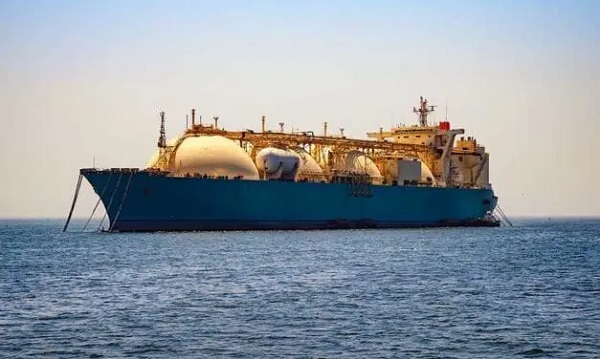
 Energy12 hours ago
Energy12 hours agoCanada’s LNG breakthrough must be just the beginning
-

 Alberta8 hours ago
Alberta8 hours agoIs Alberta getting ripped off by Ottawa? The numbers say yes
-
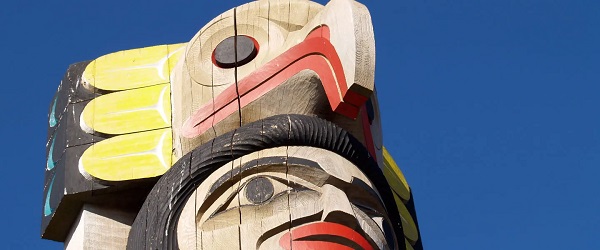
 Business13 hours ago
Business13 hours agoCourt’s ‘Aboriginal title’ ruling further damages B.C.’s investment climate
-
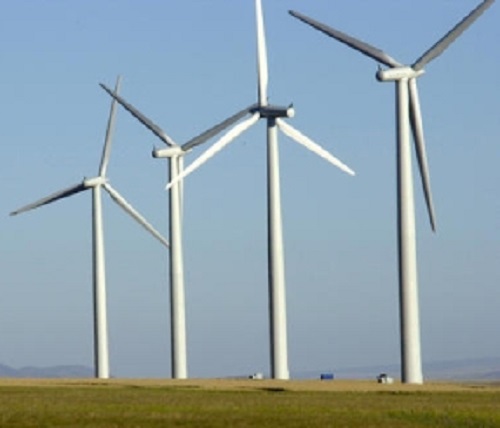
 Agriculture6 hours ago
Agriculture6 hours agoIn the USA, Food Trumps Green Energy, Wind And Solar
-

 Business38 mins ago
Business38 mins agoManitoba Must Act Now To Develop Its Northern Ports



